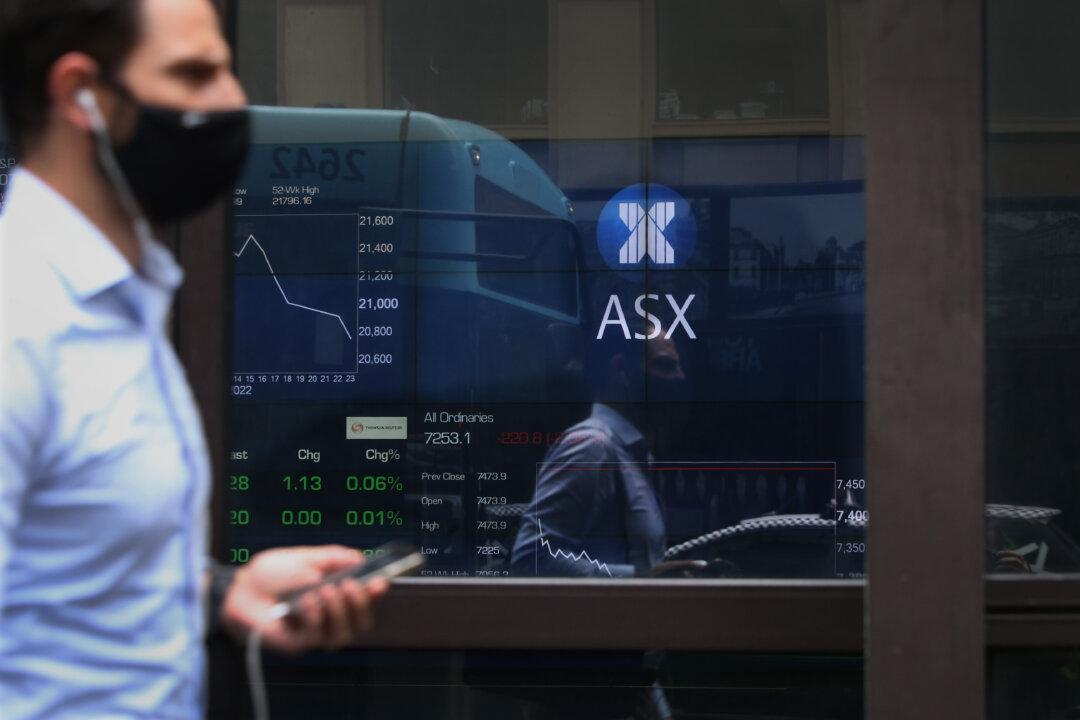The Australian Securities Exchange (ASX) has plummeted to the lowest level since November 2020 as international markets fell due to intensified worries about the world economy.
As of noon on June 17, the benchmark S&P/ASX200 index dropped 2.23 percent to 6,452.9, while All Ordinaries went down 2.12 percent to 6,641.7.





